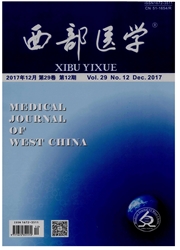

 中文摘要:
中文摘要:
自身免疫病是一类免疫应答异常激活,自身免疫耐受失衡的异质性疾病。目前治疗仍以传统药物为主,难以根治,且有较多毒副作用。间充质干细胞(MSCs)是一群具有低免疫原性和免疫调节功能的细胞,可从骨髓和其他组织中成功分离出来,通过分泌调节分子和细胞一细胞直接接触,调节免疫,诱导免疫耐受。因此,MSCs逐渐成为自身免疫病细胞治疗的理想来源。近年来,动物试验和临床研究证实了MSCs治疗自身免疫病的有效性和安全性。本文结合本科室研究成果,就MSCs的免疫调节特性和MSCs治疗系统性红斑狼疮(SLE)、系统性硬化症(SSc)和类风湿关节炎(RA)的研究成果做一述评并提出展望。
 英文摘要:
英文摘要:
Autoimmune diseases are a group of heterogeneous diseases characterized by aberrant activation of the immune system with failure of the immune tolerance. Current systemic therapies show adverse side effects, and are rarely curative for patients with autoimmune diseases. Multipotent mesenchymal stem cells (MSCs), isolated from bone marrow and other sites, display low immunogenieity and immunomodulatory properties, which they exert through soluble mediators and through direct cell-cell contact. MSCs appear as ideal tools to treat autoimmune diseases. The current data from animal experiments and clinical trials have confirmed MSCs efficacy and safety in the treatment of autoimmune diseases. In this review, we highlight the immunomodulatory properties and the recent development of MSCs therapies for systemic lupus erythematosus, systemic sclerosis and rheumatoid arthritis.
 同期刊论文项目
同期刊论文项目
 同项目期刊论文
同项目期刊论文
 期刊信息
期刊信息
